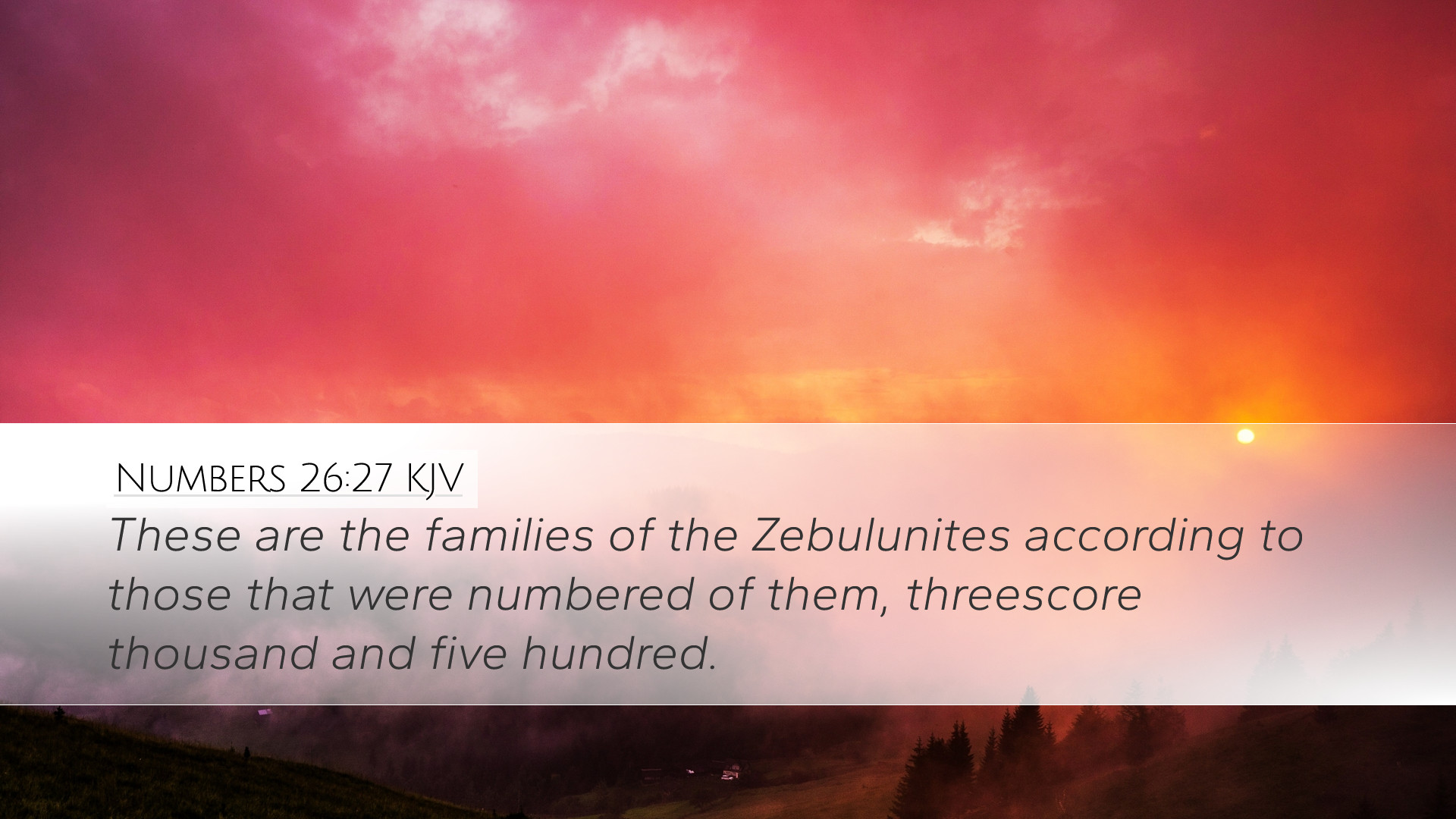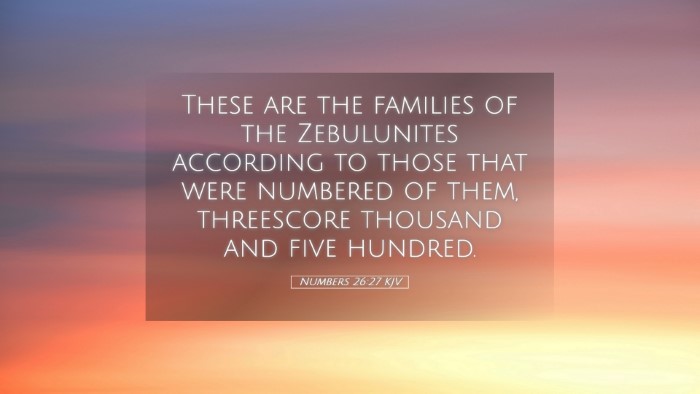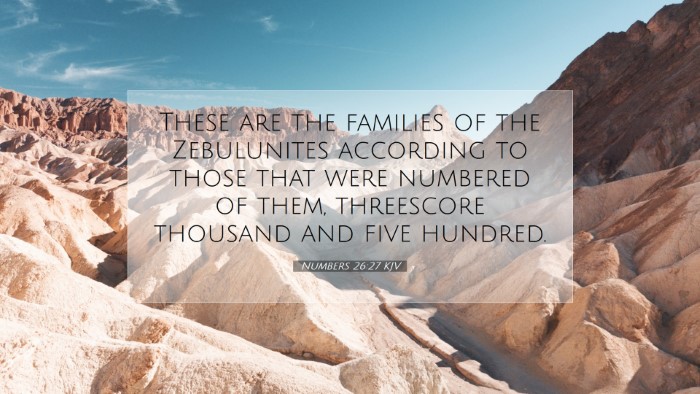Commentary on Numbers 26:27
Verse: Numbers 26:27 - "These are the families of the Zebulunites: according to those that were numbered of them, were fifty and seven thousand and four hundred."
Introduction
The second census recorded in the Book of Numbers serves multifaceted purposes: it confirms God's faithfulness to His promises, especially regarding the inheritance of the land, and organizes the Israelite community for military and religious structure. Numbers 26:27 provides specific information about the tribe of Zebulun, highlighting its numerical strength and familial structure. Understanding this verse enables deeper exploration of God’s unfolding plan for Israel.
The Significance of Census in Ancient Israel
Censuses were vital in ancient Israel for several reasons:
- Military Organization: By counting the people, leaders could effectively organize them into armies, ensuring readiness for battle against enemies.
- Land Distribution: The census data were used to fairly distribute the Promised Land among the tribes, reaffirming God's promise to His people.
- Sociocultural Identity: The genealogical records provided a sense of identity and belonging to the families within the tribes, marking their place in the broader community of Israel.
Insights from Commentaries
Matthew Henry's Commentary
Matthew Henry emphasizes the importance of recording numbers in the context of God's covenant with Israel. The documentation of the Zebulunites serves as a reminder that each tribe has a role to play in the narrative of God’s people. He notes that the population reflects God’s blessing and favor, suggesting that the growth is a direct result of divine promise.
Albert Barnes' Notes on the Bible
Albert Barnes highlights the structure of the verse, particularly the organization into families. He points out the tribe of Zebulun's size of 57,400, indicating that this number suggests not only physical strength but also the ability to contribute to the collective mission of Israel. Barnes discusses the significance of the families being named, suggesting that each household had its own role and responsibilities in the larger community.
Adam Clarke's Commentary
Adam Clarke elaborates on the Manasseh and Zebulun tribes' connection, pointing out historical nuances regarding their significance in Israel's journey. Clarke adds that the tribe of Zebulun was strategically located, influencing trade and military operations in the region. He draws attention to the prophetic blessing given to Zebulun, which allows for their historical importance to be recognized beyond mere census numbers.
Theological Implications
Each commentary provides insight into the broader theological implications behind Numbers 26:27:
- Divine Provision: The numerical growth of Zebulun signals God’s faithfulness in fulfilling His promises, which reaffirms the covenant relationship between God and Israel.
- Community and Identity: Each family’s mention underlines the importance of community structure, suggesting that individual and collective identities are vital in God’s economy.
- Mission and Purpose: The recorded numbers remind us that God equips His people for the mission entrusted to them, thereby calling for each tribe to contribute uniquely to His purpose.
Applications for Pastors and Theologians
This text offers numerous applications for church leaders and theologians:
- Leadership Structure: Just as the tribes were organized, modern churches should consider their leadership structures to ensure every member's role enhances community engagement and mission.
- Faithfulness in Community: Understanding the importance of each family within the body of Christ encourages leaders to value every member's contribution.
- Mission Focus: The census acts as a challenge to reflect on how the church mobilizes its members for service, reinforcing that every Christian has a part in God's work.
Conclusion
Numbers 26:27, while seemingly a straightforward census record, is rich with theological depth and practical implications for readers. It serves as a testament to God’s providential care and a call to recognize the importance of each member within the greater body of believers. As pastors, students, and theologians reflect on this verse, they are reminded of their role in God’s ongoing narrative and the essential calling to community, mission, and divine faithfulness.


